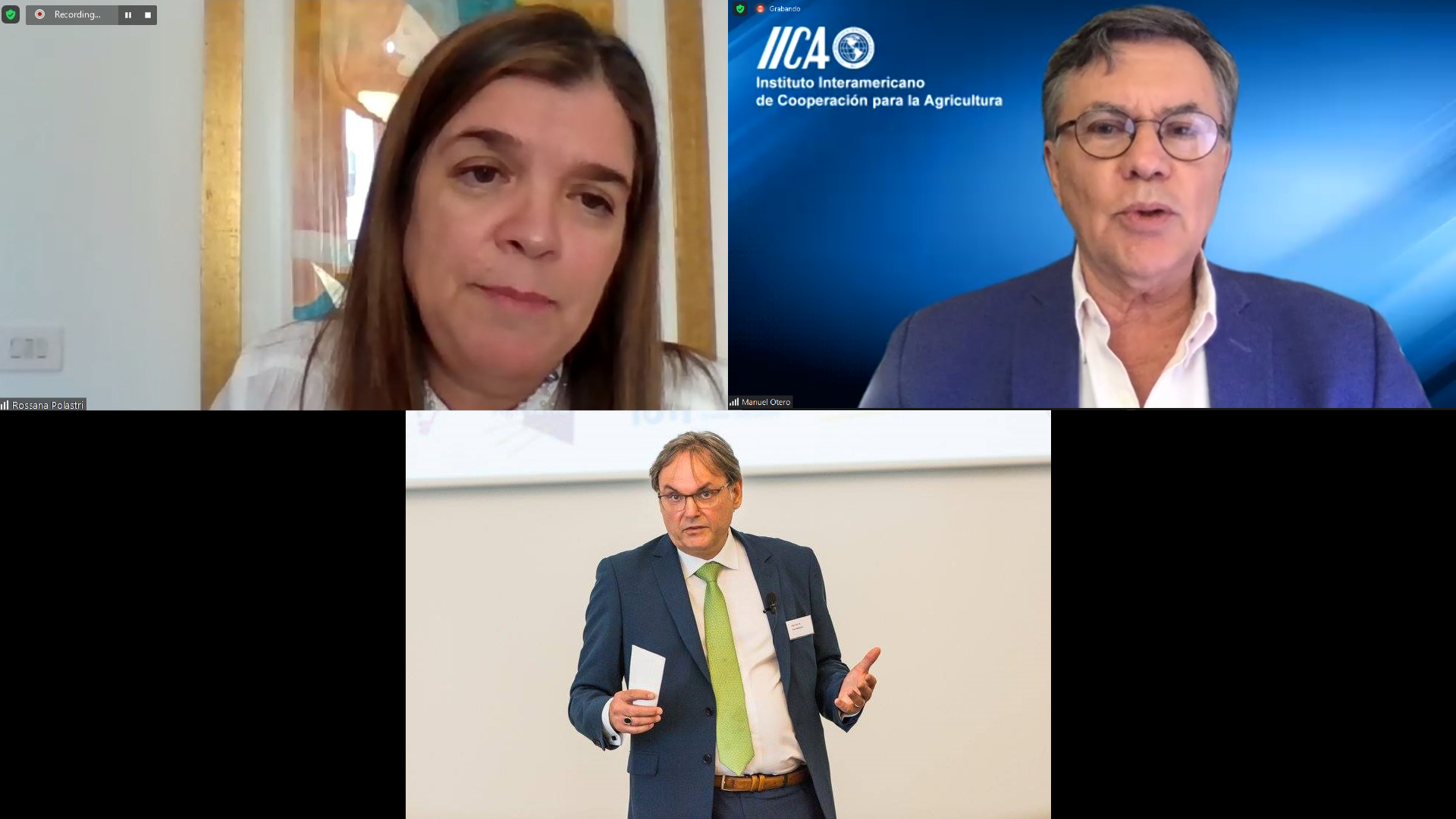More than 10,500 farmers will be able to overcome obstacles faced in accessing markets and funding opportunities during the Covid-19 pandemic.

La Paz, 5 April, 2021 (IICA) – More than 10,500 farmers in five countries will be able to overcome obstacles faced in accessing markets and funding opportunities thanks to Agridigitalización, a project implemented by Agriterra in partnership with Agros Internacional, the Foundation for Rural Business Development (Funder) and the Inter-American Institute for Cooperation on Agriculture (IICA), with funding from the Rural Poor Stimulus Facility of the International Fund for Agricultural Development (IFAD).
The project, which will foster e-commerce and digital solutions, will enable small-scale producers from rural cooperatives and credit unions in Bolivia, Guatemala, Haiti, Honduras and Peru to achieve market access for their products through digital technical assistance and e-commerce, thereby overcoming obstacles brought on by the Covid-19 pandemic.
During the presentation of the initiative, Rossana Polastri, Director for Latin America and the Caribbean of the International Fund for Agricultural Development (IFAD), stated that Agridigitalización seeks to work together with cooperatives, producer organizations and farmers to generate connections with e-commerce solutions and thereby improve their financial resources through digitalization.
“It is during times of crisis, such as the one we are currently facing, that we must look more than ever to the future. And it is clear that the future of the global economy will be digital”, stated Polastri.

The initiative includes the digital evaluation of producer organizations and rural credit unions; the identification of platforms, services and applications; the provision of technical assistance and training opportunities in e-commerce and related solutions; as well as commercial and financial transactions and the implementation of an internal communication system.
Manuel Otero, Director General of IICA, underscored the importance of generating a greater cooperative movement and more rural credit unions to guarantee the profitability of farmers, whom he described as “the soul of rurality”.
“I would highlight the fact that this project represents the new philosophy for cooperation models, which is that cooperation should involve multiple countries. There is a great opportunity to bring together and empower youth and women with these new tools, which will allow for transforming the reality of agriculture, ensuring that rural dwellers have better income, as well as generating more jobs and opportunities so that rural territories become areas for progress”, remarked. Otero.
The project seeks to capitalize on existing tools, experiences, knowledge, digital models for financial services, e-commerce and technology.
On the other hand, Santiago Vélez, IICA Representative in Bolivia, emphasized the fact that the initiative seeks to improve the quality of life of the members of family farming organizations in the different territories. He also noted that the Institute had identified tools that it would make available to producer organizations.
“One of the key actions to be carried out by the project is to identify different strategies for adapting digital skills, based on the experiences of different rural territories and the capacities of family farmers. To this end, we will make available various IICA strategies, tools and instruments”, stated Vélez.
Kees Blokland, Director of Agriterra, highlighted the role of cooperatives as a link between producers that facilitates communication and the exchange of products. He added that, as a business model, cooperatives have demonstrated their resilience during times of crisis.
“Amidst the current health crisis, cooperatives are providing very creative responses, and we hope that they will play a decisive role in recovery efforts”, he concluded.
More information:
Santiago Velez, IICA Representative in Bolivia











